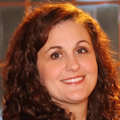Your clinical dream job: 4 ways to make it happen
The US Bureau of Labor Statistics has projected employment of dental hygienists to grow 6% from 2019 to 2029, which is faster than the average for all occupations. The links between oral health and general health, and efforts to increase access to care are attributed to this projected growth.1
COVID-19 has further changed the landscape of our profession. In February of this year the ADA, in partnership with the ADHA, published the results of a survey to address employment patterns of dental hygienists in the United States during the COVID-19 crisis. The analysis supports the idea that dental hygienists are currently in higher demand because the pandemic has resulted in some hygienists leaving the profession.2
With greater demand comes more choices to align yourself with an office and a position that can provide more of what is important to you. Employees who can spend time on tasks they prefer, in environments with positive relationships and a sense of belonging are more engaged, committed, happier and healthier.3
The words “clinical home” got me thinking of the analogy of building a home. Here are some tips with that in mind to help you zero in on that goal.
1. Create your blueprint
Much in the way you would not build a dream home without sketching it out, the same can be said for finding a dream job. The fact is that everyone’s dream is different, and you have to gain clarity on what the ideal is for you. Think about areas such as:
Compensation and structure of pay
- Desired range
- Base pay, commission, or combination?
Benefits
- Health/dental insurance, retirement plan, disability insurance, paid time off, reimbursement for CEs, uniform allowance, etc.
Hours and days worked
- Needs/preferences?
Practice philosophy
- Expectations/standards around hygiene visits, production, standards and quality of care
Location
- How far are you willing to travel?
Type of practice
- General or specialty
- Size
- Corporate, private practice, or public health
Work environment
- Coworker relationships
- Quality and quantity of instruments/equipment/PPE
- Resources available
- Workspace and ergonomics
- Pace, types of patients, variety of tasks
Leadership style and role
- Traits you prefer
- Office manager, dentist/owner, lead hygienist, clinical manager?
This list is not all inclusive; add to it based on your personal preferences and needs.
Think about your “must haves”, “nice to haves” (but you are willing to compromise), and those things that are absolute deal breakers for you. The clearer you are, the easier it is for you to identify when you’ve come across an opportunity that has the potential to become your home.
2. Explore the land
You would not choose to build a house in a location that you are not familiar with. You might do research, ask people what their town is like, and do some exploration of different places before you buy your plot of land, right? When job seeking, you yield the best results when you approach it this way.
All of the best jobs I’ve had have come from doing my research and networking. Many were jobs that were never advertised. I can’t drive past a dental office or see one listed on social media without curiosity taking hold. In the world we live in today, it is easy and immediate to investigate, check out a website, and look at patient reviews. When you see an office that looks interesting to you, send a customized letter to introduce yourself. Include what attracted you to contact the office, highlight relevant skills and experience, and attach a well-written professional resume. Many offices are interested in meeting with available candidates either for temporary coverage or future permanent positions. It is never wasted time to explore. The more people you know in the field, the better!
This leads us to networking, which has been responsible for so many incredible opportunities that have floated my way. Many great offices where I’ve worked rarely advertised and never went farther than the current hygiene team to find potential sources for open positions. The world of dentistry can be small. With that, you can often get information on openings, and insight about offices that can help you determine fit.
Make connections through your school alumni office, professional associations, study clubs and social media. It is not only a great source for career opportunity, but the friendships, learning and idea sharing can help keep you connected, energized and engaged in your career.
3. Know the neighborhood
Just like you would want to know facts about a potential neighborhood (accessibility, safety, neighbors, traffic, etc.), you want the same type of intel when interviewing in an office.
I often hear people ask, “What questions should I ask on a job interview?” The fact is that the questions should be specific to what matters most to you. Go back to item no. 1, “Creating your blueprint,” if you are unsure.
If you are very perio focused you might want to ask questions about the percentage of D4000 procedures the office sees on average. Do they have a perio program and standard protocol? Can you see what instruments they use? How often are they replaced?
If the structure of the schedule is important to you, you might ask to see a copy (with patient names blocked out) of what a typical day looks like. You can see the amount of time allotted, and the types of procedures performed.
There are different schools of thought on working interviews. I have found them helpful in that you really do get a glimpse of a day in the life at that office. You also have the opportunity to interact with the team and feel what that dynamic is like. If you choose to do a working interview, remember that if you are seeing patients you must be paid for your time. I would recommend getting what you agree upon in writing to protect both parties. Also be sure to complete a W-4 form with the office for appropriate tax withholdings.
4. Get insurance
Just like one would have home insurance, the same can be said for job offers. All relevant details should be in writing and signed by both parties, with each keeping a copy. The document should include the compensation, hours, benefits, and any other provisions discussed to protect both the employer and employee from any misunderstanding. Always read all details and fine print before signing.
What I’ve learned over my career that there are some great jobs out there, and preferences can vary widely per individual. The best working relationships for me have been those that are respectful, reciprocal, and have helped me grow. Sometimes it may take some trial and error before you find your ideal, but remember that there is always something to learn and to take away from any experience. Be the professional you were trained to be. Stay true to your code of ethics. Do more of what brings you fulfillment, and enjoy the journey!
References
1. Dental hygienists. Occupational Outlook Handbook. US Department of Labor Bureau of Labor Statistics. https://www.bls.gov/ooh/healthcare/dental-hygienists.htm#tab-6
2. Gurenlian JR, Morrissey R, Estrich CG, et al. Employment patterns of dental hygienists in the United States During the COVID-19 pandemic. J Dent Hyg. 2021;95(1):17-24. https://www.adha.org/pri_docs/Feb-2021_JDH_EmployPatterns_DH_COVID.pdf
3. Weir K. More than job satisfaction. American Psychological Association. December 2013. https://www.apa.org/monitor/2013/12/job-satisfaction
Julie Whiteley, BS, RDH, is certified in human resources and holds degrees in business administration and dental hygiene. She is currently a patient care advocate for an oral health and wellness center focused on prevention and increased access to regular dental care. Julie is on the faculty of Massachusetts College of Pharmacy and Health Sciences University. She bridges her knowledge and experience from business, clinical hygiene, and teaching to deliver information and programs that enhance dental practices. Contact her at [email protected].
About the Author

Julie Whiteley, BS, RDH
Julie Whiteley, BS, RDH, is certified in human resources. She holds degrees in business administration and dental hygiene and has worked extensively in both fields. She is on the faculty of Massachusetts College of Pharmacy and Health Sciences University in Boston. Julie bridges her knowledge and experience from business, clinical hygiene, and teaching to deliver information and programs that enhance dental practices. Contact her at [email protected].
